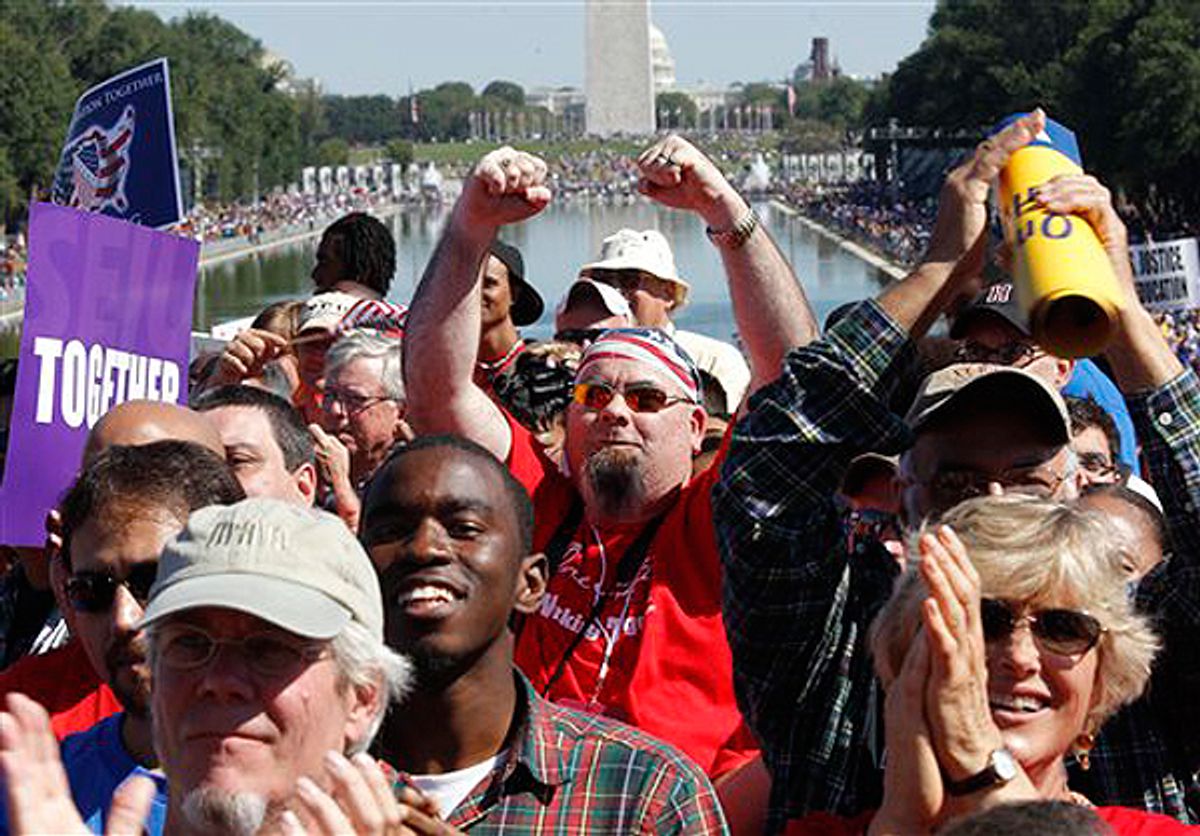One might wonder how a country that’s becoming increasingly diverse — some projections have the country becoming majority minority by 2060 — is witnessing a resurgence of white nationalist movements that used to exist on the margins of American politics.
As a psychologist who studies social attitudes and biases, I am interested in the impact that increasing diversity and social progress can have on racial attitudes. In a recent study, a colleague and I analyzed how simple reminders of diversity and minority power can influence biases. The results show that the growth of minority populations in the United States could mean that xenophobic, racist rhetoric is more likely to resonate with many Americans.
How diversity influences racial attitudes
For the study we recruited 202 white people from across the country. We divided them into three groups. One group read excerpts from a New York Times article on the projected minority-majority population shift in America. Another read excerpts from a New York Times article on the racial significance of President Obama’s election in 2008. The last group — the control — didn’t read anything.
Next, we had participants complete a test of implicit racial bias. This means that we didn’t just ask people about their racial attitudes; we had them take a computerized reaction time test to assess their biases.
When it comes to sensitive topics like racial attitudes, people are often reluctant to admit their biases. Sometimes they’re not even aware what biases they have. The Implicit Association Test, the most frequently used measure of implicit attitudes, requires people to quickly categorize words (for example, good and bad) and pictures (such as faces of black people and white people) into categories. The stronger the associations we have between categories, the quicker we’re able to perform the categorizations. For instance, if a participant has more positive associations with black people than white people, they’ll be able to more quickly pair positive words with black faces.
Our results indicated that reminding white people of the increasing size or increasing political power of racial minority groups in America — whether it was via the majority-minority projection article or the article about President Obama’s election — led them to show more implicit racial bias against black people.
These findings are consistent with a concept known as Group Threat Theory, which is the idea that when minority groups grow in size or power, the majority group feels threatened. This, in turn, increases intergroup prejudice.
Other recent studies about the growth of minority populations reported similar findings. But group threat doesn’t just increase intergroup bias. It also seems to make people more politically conservative. Psychological research shows that reminding white Americans of the shifting racial demographics of the U.S. increases support for the Republican Party and political conservatism.
The role of minorities in Trump’s victory
So what can this research tell us about the success of Donald Trump, a politician who made — and continues to make — appeals to xenophobia?
Obama’s presidency could be seen as a threat to the power and privilege historically held by whites. On the heels of the first black president, Trump may have tried to capitalize on that threat to white power and privilege by promising to “take our country back” and “make America great again.”
Trump was also able to exploit the threat borne out of the increasingly large racial and ethnic minority population in the United States. As a presidential candidate, Trump hurled some of his most offensive and xenophobic insults at immigrants, stoking fear against Latinos and Muslims (or those from majority Muslim countries) in particular.
This isn’t to say that all Trump voters are racist or xenophobic. But for reasons stated earlier — growing diversity, a black president — many may have been more open to these appeals (or willing to overlook them). Trump certainly played on group threat, telling his supporters that immigrants were stealing their jobs, exhausting public benefits and challenging the American way of life. From a psychological perspective, we know these reminders will cause people to feel threatened.
Whether Trump did it knowingly or not, it was incredibly effective. And now other groups are following his lead.
![]() Editor’s note: This is an updated version of an article first published on Jan. 4, 2017.
Editor’s note: This is an updated version of an article first published on Jan. 4, 2017.
Allison Skinner, Psychology Researcher, Northwestern University



Shares